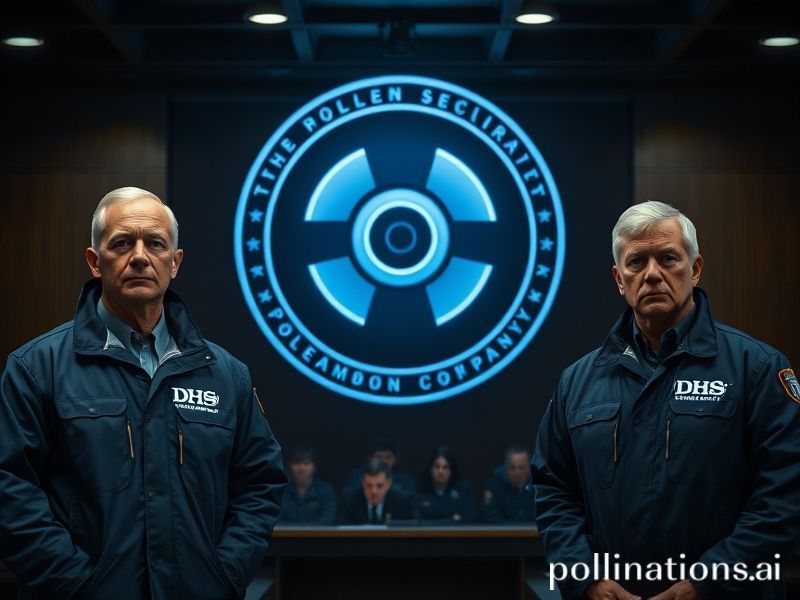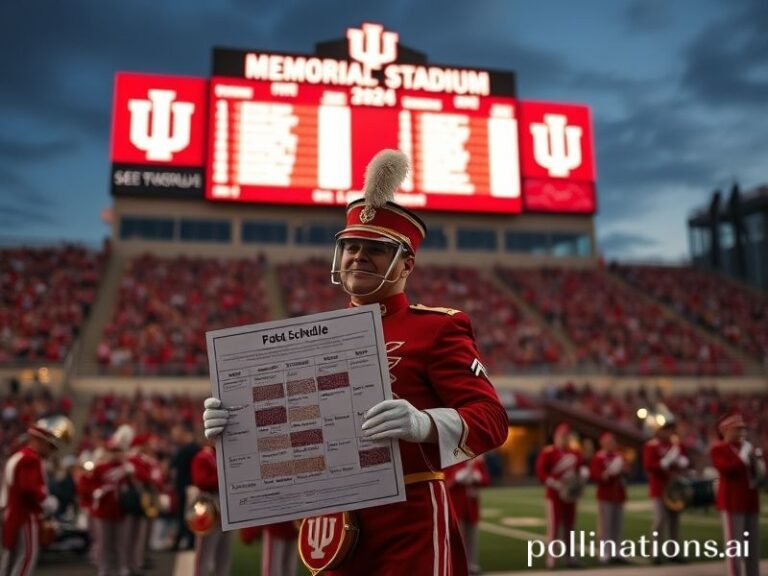Pikachu’s Private Army: How Pokémon Just Declared Itself a Nation-State
TOKYO—The Pokémon Company announced this week that it will establish an internal “Homeland Security Division,” an initiative that—depending on your geopolitical persuasion—either signals late-stage capitalism’s final victory lap or proves we now live in a timeline where Pikachu has a higher security clearance than most NATO officers. International observers, still recovering from the revelation that a card-game empire commands more soft power than several G-20 members, are asking the obvious question: what does homeland security look like when your homeland is 90 percent merchandising margin?
The division’s mandate, according to a press release typed in Comic Sans (a font choice that, intentionally or not, screams “we own your childhood and we’re not sorry”), is to protect “the integrity of the Pokémon brand and the safety of its global community.” Translated from corporate Kanto, that means counterfeits, data leaks, and—because this is 2024—deepfake Jigglypuffs radicalized on 4chan. The new unit will reportedly include cyber-forensics, special-ops plush inspectors, and a rapid-response team capable of deploying anywhere within 24 hours, presumably via chartered 747 painted to resemble a giant Poké Ball. One can almost hear the groans from U.S. Customs: “Sorry, sir, that kilo of suspicious powder is actually limited-edition Master Ball bath salts.”
Globally, the announcement lands like a Wobbuffet in a china shop. France’s interior minister, juggling pension riots and Olympic terror threats, muttered that “even fictional creatures now get better funding than la police.” Meanwhile, the Kremlin—never one to miss an opportunity—hinted that any Pokémon peacekeepers straying into Kaliningrad will be “met with appropriate force,” raising the surreal prospect of Spetsnaz squaring off against a 10-year-old with a holographic Charizard. Down in Canberra, Australian strategists are drafting contingency plans for “Pokémon influence operations” in the Solomon Islands, because apparently the only thing scarier than Chinese naval bases is Snorlax blocking shipping lanes.
The broader significance is hard to miss: we have reached the moment when soft-power titans no longer outsource security to states; they simply become states. The Pokémon Company’s annual revenue ($2.1 billion) exceeds the defense budgets of Latvia, Estonia, and Lithuania combined. When Pikachu’s handlers can outspend NATO’s eastern flank on brand enforcement, sovereignty starts to feel like an optional DLC. Analysts at the Center for Strategic and International Studies—whose interns now trade “Pokémon threat intel” on Slack—note that the franchise’s 1,000-plus species constitute a ready-made taxonomy for clandestine operations. Code-word “Project Ditto,” anyone?
Naturally, the market reacted with the sober gravitas of a bull in a china shop full of rare holographics. Nintendo stock ticked up 3 percent, defense contractor Raytheon dipped 1 percent, and Etsy vendors selling crocheted Oddish gas masks sold out within minutes. Cryptocurrency bros launched $PIKA, a token promising “decentralized gym badges,” because if there’s one thing the world needed, it’s Ash Ketchum on the blockchain. Even the Vatican weighed in, reminding the faithful that “idolatry takes many forms, some with tiny red cheeks.”
Behind the snickering lies a darker calculus. When private corporations field paramilitary units, the line between consumer and citizen disappears faster than a rare card on launch day. Tokyo’s Metropolitan Police now subcontract weekend crowd control to part-time Pikachu mascots—cheaper, cuter, and disturbingly compliant. In Brazil, cartels reportedly launder cash via first-edition booster packs, prompting the central bank to propose “Pokémon Know Your Customer” rules. Somewhere in Brussels, an EU commissioner is drafting anti-trust legislation titled “Gotta Regulate ’Em All.”
Conclusion? The Pokémon Company’s Homeland Security Division is less an absurdity than a harbinger: the logical endpoint of a world where branding is power and nostalgia is a strategic resource. When imaginary monsters require real-world SWAT teams, perhaps the joke is on us for ever believing the 21st century would make sense. Until then, keep your passports ready, your decks sleeved, and remember: if you see a Charizard circling overhead, it’s probably just surveillance. Probably.







